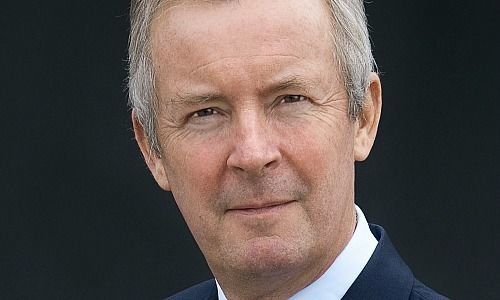Pictet: Change of Guard or Change of Strategy?
Unexpected as it was, Nicolas Pictet’s retirement may not be the biggest change at the Swiss private bank.
When a routine «semestrial» in Geneva led to the announcement that Nicolas Pictet (pictured below) – the family’s patriarch and the bank’s most senior partner – would be retiring after almost three decades in the bank, many theories surfaced on what might have prompted yet-another change at the institution.

«Honestly, Pictet has made more changes in the last two years than it did in the previous two hundred,» says one Zurich-based family office executive who is a client of the bank. He is referring of course to the addition of Boris Collardi to the eighth generation of Pictet partners last year. Indeed, there has been much speculation about the role Collardi may or may not have played in the announcement earlier this week.
The Bank's Newest Partner
But those ruminating about a possible coup and its fallout are missing the point, according to sources close to the developments. Although it did not get a single mention in the headlines announcing Pictet’s retirement, the appointment of Sebastien Eisinger (pictured below) as the bank’s newest partner, is telling.

«He is an investments guy not a relationship guy,» says one employee of him, and indeed, Eisinger has distinguished himself primarily for his investment expertise through his two decades at Pictet Asset Management. «There are several Pictets’ floating around,» says the employee referring to the younger generation that is waiting in the wings to take its position at the bank, but for the moment the board has chosen to «tilt towards asset management» – Eisinger joins senior partner Renaud de Planta (pictured below) who is «the architect behind Pictet Asset Management» having spent much of his career building and leading the business that now accounts for half of the group’s assets under managements and profits.
Extremely Cautious

Asset management is a balance-sheet light business that is seen as lower risk than private banking because it deals with institutional or quasi-institutional clients. Both aspects are extremely attractive to the bank at the moment, according to people in the know. Of course private banking has dominated the conversation about Pictet but despite the reams that were written about the big hiring push, the reality has been something of an anticlimax with mid-level bankers rather than big teams joining in Collardi’s wake. For the moment, the bank is continuing to be extremely cautious about its spending.
More conclusive evidence it is indeed «shoring up its balance sheet» like some say it is, comes via conversations with some Pictet clients in Asia. One has been refused credit that would have been collatarised by super-prime real estate in Hong Kong, a deal very quickly snapped up by a larger private bank once Pictet refused.
Escalated Approval of Bonuses
Another was recently turned away after having been initially assured the bank was comfortable with extending him a line, once again on a loan that was comfortably collateralised. Anecdotally, it would appear the bank does not want to deploy balance sheet for private banking clients across market segments and geographies in Asia.
Equally bizarrely, promotions and bonuses in Asia that had been previously agreed have been escalated up for de Planta’s approval. «Why is the most senior partner debating an assistant’s bonus?» wonders one headhunter who has been following the developments, «it looks like they are building up their reserves». If Pictet is indeed cleaving its businesses and clawing back expenditure on the wealth business, it begs the question why?
Bellwether for Entire Industry
Some industry watchers point warily to the looming spectre of a substantial fine in the U.S but at this point those rumours appear unfounded. Others speculate Collardi is building a war chest with which to acquire – valuations now are lower than they were when he planned the now storied Merrill Lynch acquisition. Neither camp is willing to rule out that wealth management may be spun out as an independent unit, putting further distance between the partners and the business that poses the greatest reputational risk for increasingly lower returns.
«Pictet’s [next move] will be a bellwether for an entire industry,» concludes the source, «for where [the two centuries-old bank] leads, others are going to be tempted to follow.»























